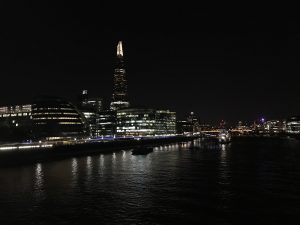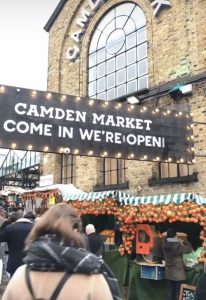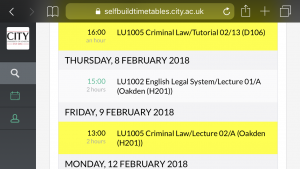Whenever I ask somebody for a piece of advice about what student-friendly things I can do in London, it is always kind of all museums and galleries. I love culture and art as much as the next person, honestly, I do. But if I had to go to free museums and portrait galleries every time I needed to distract myself from my assignments, I would have poked my eyes out. So I have made this list of five “on a budget” places you can go whenever you find some free time from your studies.
Number one: The London Eye… is, in my opinion, incredibly overrated. I know it’s a favourite with tourists and it’s just one of the most iconic images of London. But, to be honest, it can be quite expensive for a ticket and around the 10-minute mark it can get quite boring, as you are looking at the same view all the way around. Instead, if you would like to do something different, you can go to The Shard. Although there is an admission fee, there is no time limit on your stay, you can purchase drinks and snacks and, most importantly, enjoy the breathtaking view from Level 72 whilst walking amongst the clouds!
Number two: London is home to many fictional and non-fictional characters. If you are a nerd like me, you will enjoy the following places:
-
- Probably one of the most well-known fictional characters is Harry Potter. I would really like to suggest the ‘Harry Potter: Warner Brothers Studio Tour’, however, the ticket price is not necessarily budget-friendly! A “muggle” substitute is the Harry Potter Shop at King’s Cross Station, where you can see Platform 9 3/4 and pretend to push a trolley through the wall.
- Shakespeare’s Globe has been reconstructed – this is not the original. However, it is beautiful! You don’t have to go inside, just take a picture and then visit the pub next door, or walk down South Bank to the Tate Modern and swing on the fun group swings.
- Sherlock Holmes. You can visit his house-museum at 221B Baker Street, take pictures in his Victorian apartment and enjoy a waxwork exhibition of his most popular adventures. The gift shop is free to go in and explore all the unusual objects and souvenirs that are available for purchase.
Number three: The markets! There are so many in London! My favourite is Camden Market. It is located relatively close to City and it is the collective name of several large markets selling crafts, clothes, jewellery and food from all over the world, as well as a huge variety of weird and wonderful things. The Borough of Camden itself is a lively base in London for the alternative crowd. The non-conformists who you will meet there are as interesting as the market itself.
Number four: Walk, walk, walk! London has so many hidden gems that you cannot discover just from riding on a double-decker bus. One of my favourite areas is the South Bank, right beside the River Thames. It’s a tree-lined riverside walkway with many restaurants, pubs and iconic landmarks like Big Ben and St. Paul’s Cathedral. You can enjoy street performers, frequent fairs at the Southbank Centre, and incredible photo opportunities.
Number five: Travel! London can give you so much more than the usual tourist destinations. Hop on a bus or the tube and explore! I will share with you two of my favourite places I have discovered from my journeys.
-
- God’s Own Junkyard. Take the N56 bus from the bus stop outside City Bar, and for an hours’ time and £1.50 less in your bank account, you will be in one of the most incredible places I have ever been. It is bright, vintage and free. It has good music, food, neon signs and such a lovely staff.
- Junkyard Golf Club. This time, take the N205 bus and 30 minutes later you will arrive at these crazy 9-hole golf courses. The ambience is more than incredible – UV lights, loud music, food, and weird cocktails!








